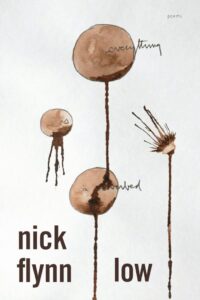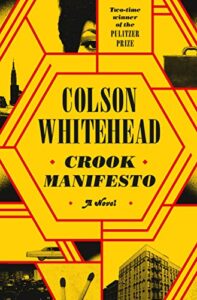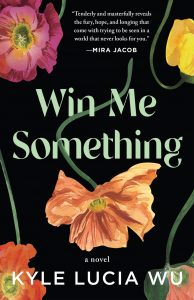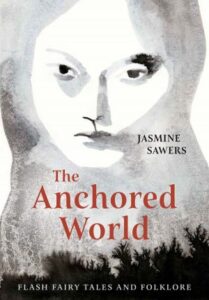Poetry. 112 pgs. Graywolf Press. November 2023. 978-1-64445-259-2.
 It was initially difficult to say whether Nick Flynn’s forthcoming hybrid collection, Low, would be an engagement with the mundane or something more. One of my favorite poetry collections from the previous decade is Flynn’s The Captain Asks for a Show of Hands, which focuses on the body in politics and media. In that collection, voices of the Abu Ghraib detainees ring in the ears, challenging every image and theme to appear alongside those poems. I bring this up because I’ve often conflated the poet Flynn with the reporter/essayist Flynn; coming into his newest collection, as with anything by Flynn, I expected an exploration of emotions outside my range of experience. Low, however, is an attempt to heighten the mundane, personal subject of aging.
It was initially difficult to say whether Nick Flynn’s forthcoming hybrid collection, Low, would be an engagement with the mundane or something more. One of my favorite poetry collections from the previous decade is Flynn’s The Captain Asks for a Show of Hands, which focuses on the body in politics and media. In that collection, voices of the Abu Ghraib detainees ring in the ears, challenging every image and theme to appear alongside those poems. I bring this up because I’ve often conflated the poet Flynn with the reporter/essayist Flynn; coming into his newest collection, as with anything by Flynn, I expected an exploration of emotions outside my range of experience. Low, however, is an attempt to heighten the mundane, personal subject of aging.
While feeling universal, the work still manages to give respect to individuality, and readers might feel that the text grows emotionally without placating for answers to the many questions it poses. While I believe each piece can be read in a vacuum, there are notable thematic shifts throughout the work; what begins as a concern of memory, for instance, eventually turns into something more profound end. Low constantly reaffirms, though, that there are no answers—that we might not be alone in our search for legacy, but we are most certainly bound to be trapped somewhere in the dark. My description may sound bleak, but Flynn’s practice and love of the word allows the collection to transcend the bleakness it’s likely to illicit in its first pages.
Some of the most interesting pieces of the collection are the prose sections (often following a similar title format), and I feel that they anchor Low and lead my reading of the rest of the work. In “Notes on a Monument to Ether,” Flynn gives a brief description of the Ether Monument at Boston’s Public Garden and seeks to connect anesthetics and numbness to the origin of the word, which “is akin to the Greek aithein, which means to burn brightly,” & to the Sanskrit idhryas, ‘of or like the brilliance of a clear sky’ ” (10). Flynn implies that numbness can or should (I would assume in an instinctual manner) make a person more aware of the world: “Anaisthesia is the negation of the root aesthete, from the Greek aisthetes, ‘a (keen) perceiver.’ Though I called myself a poet, I was (clearly) not a keen perceiver” (12). All of this leads to the final section on Michelangelo’s search for deeper meaning:
Michelangelo would cut up cadavers to learn human anatomy.
As it was illegal at the time to desecrate a body, he had to do this in secret, in a back room of the Basilica di Santo Spirito.
Santo Spirito. Holy Spirit.
An essence, something impossible to hold onto.
. . .
“Michelangelo, searching for something inside us he could hold onto, something essential.
. . .
Bread is essential, water is essential. (14)
Ending on “bread and water” creates more conflict than the poem initially tries to address; I think Flynn is trying to say something about how we fill our lives with unnecessary tasks and cannot be “keen observers” as a result. In other words, we don’t have time to be introspective. The speaker doesn’t feel satisfied with simply wanting less in order to experience more, nor should he—I find that a lot of the poetry here, maybe because of the placement of “Notes on a Monument to Ether,” is about human worth and time—not only the time we put forth toward our legacy, but the time we get back.
Low often expresses the universal turmoil of nostalgia through ethereal spaces, and I think Flynn does so in often unique and interesting ways. In “Notes on a Calendar Found in a Stranger’s Apartment,” a neighbor has recently died and there’s an estate sale happening; books are being taken from the home, and the speaker is invited in to see the house itself:
“Everything he owns is being carried past me & out into a pile growing beside a waiting truck. From his front door, I can almost see my front door.
His name taped to the bell.
Then I am standing in his kitchen.
/
The landlord asks if I knew him.
I say no.
Then he asks if I want his flatscreen. (43)
The poem is dominated by descriptions of the inside of the house: magnets on the refrigerator, a calendar marked with red X’s, a polaroid mixed in with papers scattered on the floor. These objects take meaning when Flynn explains how as a child he used to break into people’s houses. “I didn’t want to take anything, I’d just go inside, sit in one of their soft chairs. / I wanted to be surrounded by their things” (47). The speaker takes the polaroid either to preserve the memory of this other person, or to convince himself that legacy is (or can be) a community effort; the point being that a person’s worth shouldn’t be based on their accomplishments, but love and support. It’s a sweet thought, but one still ending in a question mark: can we trust the community to do this for everyone?
Maybe not—in any case, this only lasts so long as I’m able to remember it; the poems are constantly asking me to recontextualize my understanding of mortality. In “Notes on Thorns & Blood,” Flynn explores how the human soul imitates certain plants: “I cut another tendril. Jung observed how sap, imitating blood, cycled through the seasons, flowing down its earthbound roots in winter & returning as fruit in summer. Like us, the plants try to keep it inside, but it keeps coming out” (100). The poem ends on an image of a thorn-scarred body in the shower, where “you will wash it off as if it never was [. . .] By bedtime, you won’t even be able to find the holes” (100). Suggesting that human emotion, the energy that holds us together, functions like the sap in a plant—constantly in motion, seasonal, and something we’re desperately trying to hold onto despite our mortality.
To further Flynn’s longing to preserve the individual, “Notes on Thorns & Blood” also serve as what I would assume to be a potential answer to the problem of memory and identity: whatever harm is inflicted on someone as a result of the transmission of Covid, Flynn feels that he is the responsibility: “I don’t want to be the reason someone else dies—that’s why I’m in the fields again, alone” (98). Did the pandemic allow for solitude, or was it the cause of solitude? In this case, it seems to be the former: being alone allows Flynn the opportunity to reflect on morality and individuality, and this is the crux of what he’s has been looking for: identity is something a person creates for themselves, but more importantly, it’s something they take responsibility for.
This collection is a search for hope during a lifetime of longing. Flynn’s realities take the mundane and turn everyday objects into tokens of unexpected relief; this is what we deal with—this is what could make me happy. Low ends on an idea implying that we can simply be content that we’re self-aware, that we can consider the circumstances that have brought us here and what our life might mean to others:
Family is
a word, home is a word, it could have
gone either way, it could have kept
moving from the center, we would
have become something else.
We are tasked with confronting the mundane on our own, to consider what we want and what we can or should be willing to accept.
Low is forthcoming through Graywolf Press. Purchase it now through their website.
Like what you’re reading?
Get new stories or poetry sent to your inbox. Drop your email below to start >>>
NEW book release
Ghosts Caught on Film by Barrett Bowlin. Order the book of which Dan Chaon calls “a thrilling first collection that marks a beginning for a major talent.”
GET THE BOOK


